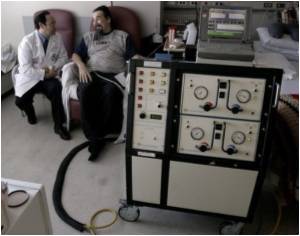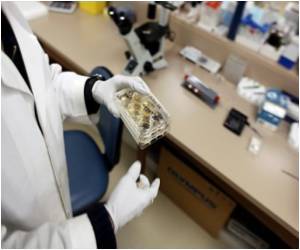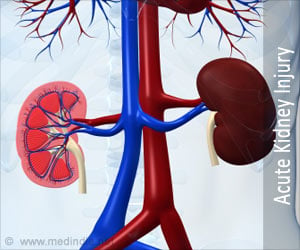More research will be required to see if this principle could be applied to the human hearts, but the findings indicate that it may be possible.

Researcher Eldad Tzahor thought that part of the answer to the regeneration puzzle might lie in his area of expertise: embryonic development, especially of the heart. Indeed, it was known that a protein called ERBB2, which is well studied because it can pass along growth signals promoting certain kinds of cancer, plays a role in heart development.
ERBB2 is a specialized receptor, a protein that transmits external messages into the cell, and generally works together with a second, related, receptor by binding a growth factor called Neuregulin 1 (NRG1) to transmit its message. NGR1 is already being tested in clinical studies for treating heart failure.
Investigation of the regenerative process through live imaging and molecular studies revealed how this happens. The cardiomyocytes "dedifferentiate," that is, they revert to an earlier form, something between an embryonic and an adult cell, which can then divide and differentiate into new heart cells. In other words, the ERBB2 took the cells back a step to an earlier, embryonic form; and then stopping its activity promoted the regeneration process.
Researcher Gabriele D’Uva added that they have shown that it can induce cardiac regeneration on its own, but understanding the roles of the other proteins in the chain may present us with new drug targets for treating heart disease.
Tzahor points out that much more research will be required to see if this principle could be applied to the human heart, but the findings are proof that it may be possible.
Source-ANI
 MEDINDIA
MEDINDIA




 Email
Email








